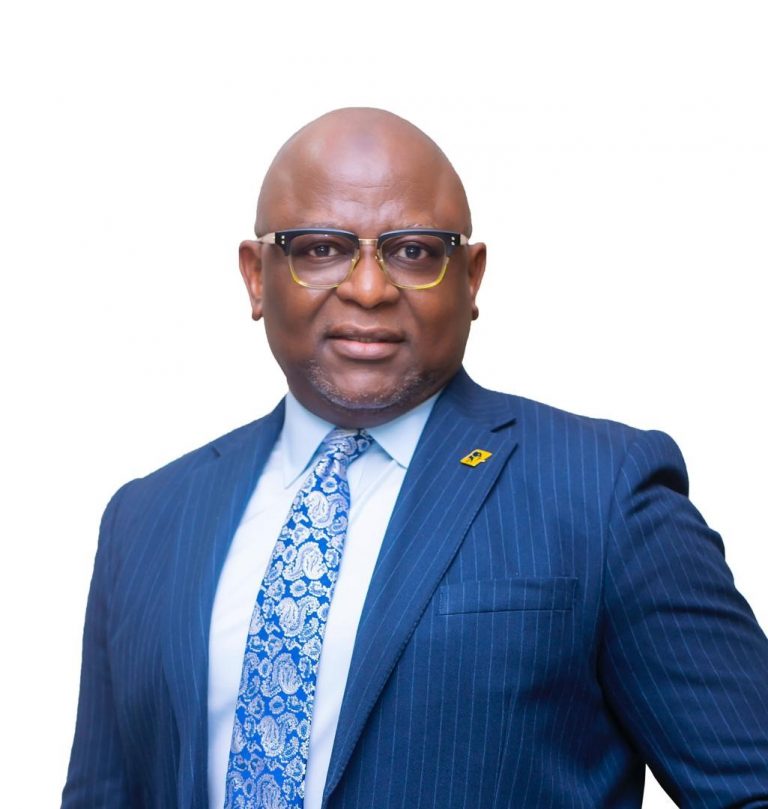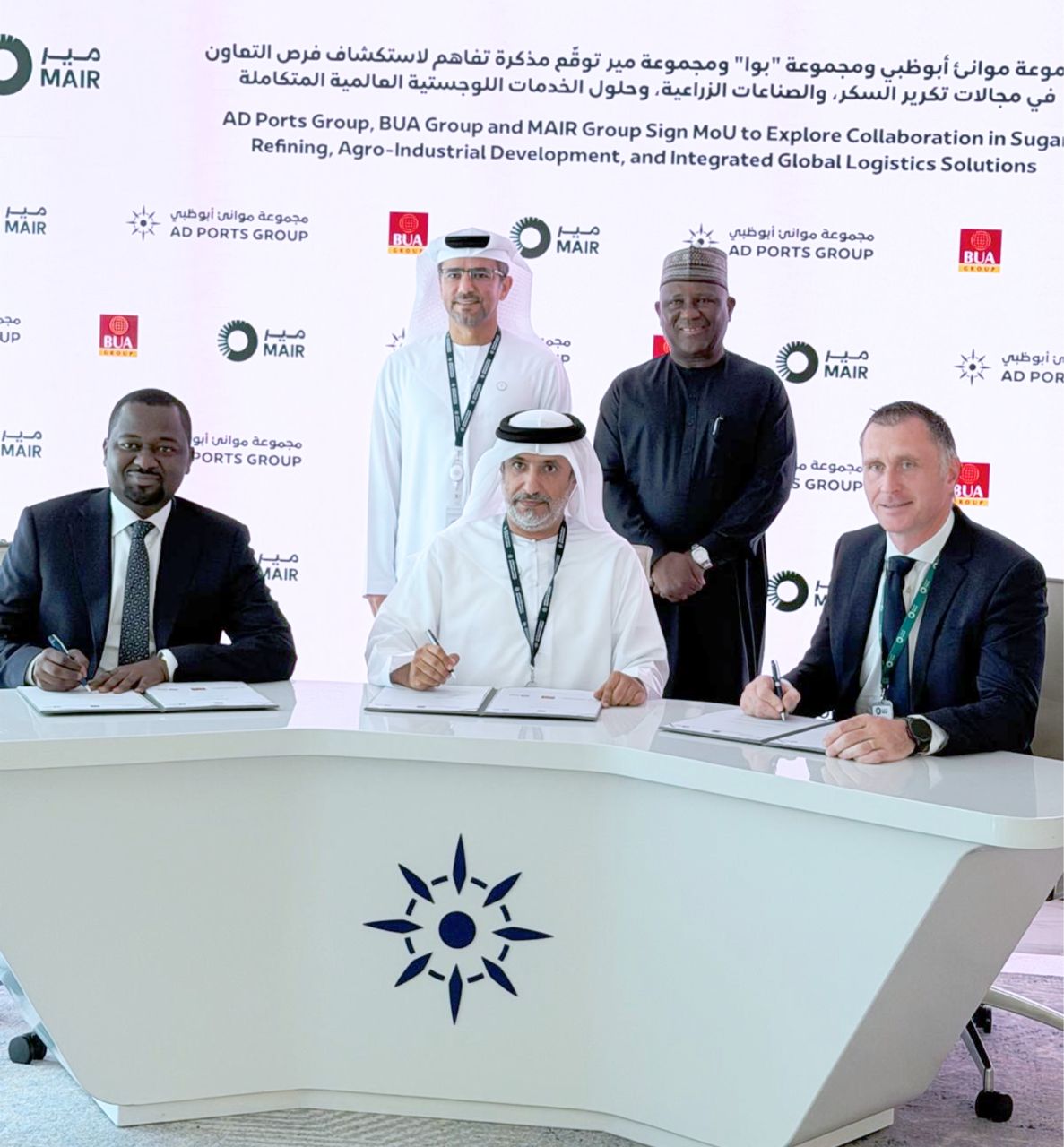Business
FIRSTBANK SUSTAINS POSITIVE IMPACT, WELCOMES BACK CUSTOMERS

FirstBank; Nigeria’s leading financial institution and Africa’s Bank of Choice has expressed its appreciation to the public – especially its customers – for their continued patronage of its services during the COVID 19 lockdown, whilst assuring the public that stringent measures have been implemented to ensure its branches and locations across the country operate in line with the health and safety guidelines issued by the Nigeria Centre for Disease Control to mitigate the spread of coronavirus.
Expressing the Bank’s delight at welcoming customers to its branches and locations from Monday, 4 May 2020, Dr. Adesola Adeduntan, the Bank’s CEO noted that these safety measures include ensuring personal protection, as wearing face masks is now mandatory; maintaining social distancing by reducing physical contact by at least one meter from the next person and queue guides and markings are in place to guide customers; as well as enhancing the practice of personal hygiene as hand washing stations and hand sanitisers have been provided.
Speaking on the impact made by the Bank across its sub-Saharan business Dr. Adeduntan said “We are glad that our investment in technology over the years has really borne fruit as many of our staff were able to work remotely during the lock down with effective IT support to hand. We were therefore able to actively support our customers, their families and businesses through these challenging times.
We ensured business continuity across eight countries – Nigeria, Ghana; Democratic Republic of Congo; Sierra-Leone; the Gambia, Guinea; Senegal and United Kingdom. We recognize that this has truly been a trying period and are poised to continue to provide as much support as we can to our customers and communities we operate in”.
Coming back home, the Bank’s Chief explained that during this period it proactively reviewed products and services to support customers better and expressed his appreciation to Nigerians for the whole hearted adoption and patronage of its electronic services, as these indeed demonstrated the trust which the public repose in the Bank and in return the Bank commits to always live by its resolve on being true to its mantra – You First.
He said “It is for this reason; putting our customers first, that our Bank working to regulatory, Federal and State Government directives worked assiduously to keep over 50 percent of our branches open across all nooks and crannies of the country.
At the same time the call centre was restaffed in the most efficient manner and retooled as we provided even more opportunities for our customers to reach us for their banking needs”.
He further provided a snapshot of transactions carried out across FirstBank’s e-banking channels during the five-week lockdown in various parts of the country:
• We recorded approximately 12.6 million withdrawals amounting to about N156bn across our ATMs well placed across the country.
• Nigerians with FirstBank cards used them 105 million times to make payments or withdrawals worth about N1.18 Trillion as they relied on us to settle their banking needs
• Our customers made transfers over 106 million times with a total value of about N8.18 Trillion across our digital channels.
• During this period, our 53,000 plus agents have processed over N512bn worth of transactions
• We have also recorded over 275,000 new sign-ups to alternative channels covering our Firstmobile; USSD and First-Online platforms.
As one of the leading SME banks in the country, with a drive to ensure SMEs are supported, Dr. Adeduntan, also stated that FirstBank has enhanced palliatives such as introduction of special waivers on repayment fees on its credit cards, and a 90-day loan moratorium on selected products across markets, to help cushion the impact of the toll on employment and livelihoods.
Our Wholesale business was also not left out as advisory services and a range of financial needs were met to the delight of our Corporate and Commercial customers.
On community impact, the Bank partnered with other organisations in the private sector to collectively help those most impacted by this pandemic. It has contributed N1billion and several volunteer staff towards the efforts of the Nigerian Private Sector Coalition Against COVID-19 (CACOVID) to meet the intervention objectives in the key areas of health; testing, provision of much needed health infrastructure, isolation units and raising public awareness and where needed providing food to the most vulnerable.
This is a time when we all must step up and do our bit by our people and our communities.
In addition FirstBank in keeping with its long standing tradition and focus on educational support and talent development has partnered with several organisations in a bid to help 1 million students access e learning.
“It is important in all this not to forget the children whose needs can so easily be overlooked at a time such as this”.
‘’ As the lock down is lifted nationwide, we will continue to provide seamless service to our customers ensuring the highest levels of support whilst operating as efficiently as possible, ensuring safety of all is paramount and empowering our staff to drive these goals. We will do these with three things in mind: ensuring you are staying safe; supporting your business; and safeguarding our future’’ Dr, Adeduntan said.

Bank
Alpha Morgan to Host 19th Economic Review Webinar

Alpha Morgan to Host 19th Economic Review Webinar
In an economy shaped by constant shifts, the edge often belongs to those with the right information.
On Wednesday, February 25, 2026, Alpha Morgan Bank will host the 19th edition of its Economic Review Webinar, a high-level thought leadership session designed to equip businesses, investors, and individuals with timely financial and economic insight.
The session, which will hold live on Zoom at 10:00am WAT and will feature economist Bismarck Rewane, who will examine the key signals influencing Nigeria’s economic direction in 2026, including policy trends, market movements, and global developments shaping the local landscape.
With a consistent track record of delivering clarity in uncertain times, the Alpha Morgan Economic Review continues to provide practical context for decision-making in a dynamic environment.
Registration for the 19th Alpha Morgan Economic Review is free and can be completed via https://bit.ly/registeramerseries19
It is a bi-monthly platform that is open to the public and is held virtually.
Visit www.alphamorganbank to know more.
Business
GTBank Launches Quick Airtime Loan at 2.95%

GTBank Launches Quick Airtime Loan at 2.95%
Guaranty Trust Bank Ltd (GTBank), the flagship banking franchise of GTCO Plc, Africa’s leading financial services group, today announced the launch of Quick Airtime Loan, an innovative digital solution that gives customers instant access to airtime when they run out of call credit and have limited funds in their bank accounts, ensuring customers can stay connected when it matters most.
In today’s always-on world, running out of airtime is more than a minor inconvenience. It can mean missed opportunities, disrupted plans, and lost connections, often at the very moment when funds are tight, and options are limited. Quick Airtime Loan was created to solve this problem, offering customers instant access to airtime on credit, directly from their bank. With Quick Airtime Loan, eligible GTBank customers can access from ₦100 and up to ₦10,000 by dialing *737*90#. Available across all major mobile networks in Nigeria, the service will soon expand to include data loans, further strengthening its proposition as a reliable on-demand platform.
For years, the airtime credit market has been dominated by Telcos, where charges for this service are at 15%. GTBank is now changing the narrative by offering a customer-centric, bank-led digital alternative priced at 2.95%. Built on transparency, convenience and affordability, Quick Airtime Loan has the potential to broaden access to airtime, deliver meaningful cost savings for millions of Nigerians, and redefine how financial services show up in everyday life, not just in banking moments.
Commenting on the product launch, Miriam Olusanya, Managing Director of Guaranty Trust Bank Ltd, said: “Quick Airtime Loan reflects GTBank’s continued focus on delivering digital solutions that are relevant, accessible, and built around real customer needs. The solution underscores the power of a connected financial ecosystem, combining GTBank’s digital reach and lending expertise with the capabilities of HabariPay to deliver a smooth, end-to-end experience. By leveraging unique strengths across the Group, we are able to accelerate innovation, strengthen execution, and deliver a more integrated customer experience across all our service channels.”
Importantly, Quick Airtime Loan highlights GTCO’s evolution as a fully diversified financial services group. Leveraging HabariPay’s Squad, the solution reinforces the Group’s ecosystem proposition by bringing together banking, payment technology, and digital channels to deliver intuitive, one-stop experiences for customers.
With this new product launch, Guaranty Trust Bank is extending its legacy of pioneering digital-first solutions that have redefined customer access to financial services across the industry, building on the proven strength of its widely adopted QuickCredit offering and the convenience of the Bank’s iconic *737# USSD Banking platform.
About Guaranty Trust Bank
Guaranty Trust Bank (GTBank) is the flagship banking franchise of GTCO Plc, a leading financial services group with a strong presence across Africa and the United Kingdom. The Bank is widely recognized for its leadership in digital banking, customer experience, and innovative financial solutions that deliver value to individuals, businesses, and communities.
About HabariPay
HabariPay is the payments fintech subsidiary of GTCO Plc, focused on enabling fast, secure, and accessible digital payments for individuals and businesses. By integrating payments and digital technology, HabariPay supports innovative services that make everyday financial interactions simpler and more seamless.
Enquiries:
GTCO
Group Corporate Communication
[email protected]
+234-1-2715227
www.gtcoplc.com
Business
BUA Group, AD Ports Group and MAIR Group Launch Strategic Plan for World-Class Sugar and Agro-Logistics Hub at Khalifa Port

BUA Group, AD Ports Group and MAIR Group Sign MoU to Explore Collaboration in Sugar Refining, Agro-Industrial Development, and Integrated Global Logistics Solutions
Abu Dhabi, UAE – Monday, 16th February 2026
BUA Group, AD Ports Group, and MAIR Group of Abu Dhabi today signed a strategic Memorandum of Understanding (MoU) to explore collaboration in sugar refining, agro-industrial development, and integrated global logistics solutions. The partnership aims to create a world-class platform that strengthens regional food security, supports industrial diversification, and reinforces Abu Dhabi’s position as a hub for trade and manufacturing.
The proposed collaboration will leverage BUA Group’s industrial and logistics expertise, Khalifa Port’s world-class infrastructure, and AD Ports Group’s operational experience. The initiative aligns with the objectives of the UAE Food Security Strategy 2051, which seeks to position the UAE as a global leader in sustainable food production and resilient supply chains. It also aligns with Nigeria’s food production- and export-oriented agricultural transformation agenda, focused on scaling domestic capacity, strengthening value addition, improving post-harvest logistics, and unlocking new markets for Nigerian produce across the Middle East, Asia, and beyond.

Photo Caption: L-R: Kabiru Rabiu, Group Executive Director, BUA Group; Cpt. Mohammed J. Al Shamisi, MD/Group CEO, AD Ports Group; Saif Al Mazrouei, CEO (Ports Cluster) AD Ports Group; Abdul Samad Rabiu, Founder/Executive Chairman, BUA Group; and Steve Green, Group CFO, MAIR Group
Through structured aggregation, processing, storage, and maritime export channels, the partnership is designed to reduce supply chain inefficiencies, enhance traceability and quality standards, and also create a predictable trade corridor between West Africa and the Gulf.
BUA Group—recognised as one of Africa’s largest and most diversified conglomerates, with major investments across sugar refining, food production, flour milling, cement manufacturing, and infrastructure- brings extensive industrial expertise and large-scale operational capability to the venture. MAIR Group will provide strategic support in developing integrated logistics and agro-industrial solutions, creating a seamless platform for production, storage, and distribution.
Abdul Samad Rabiu, Founder and Chairman of BUA Group, said:
“This MoU marks an important milestone in BUA’s international expansion and reflects our long-term vision of building globally competitive industrial platforms. Together with AD Ports Group and MAIR Group, we aim to develop sustainable food production and logistics solutions that strengthen regional supply chains and support the UAE’s Food Security Strategy 2051.”
He further added that, “This partnership represents not just a commercial arrangement but a strategic food corridor anchored on shared economic ambition, resilient infrastructure, and disciplined execution, reinforcing long-term food security objectives for both nations.”
A representative of MAIR Group added:
“This collaboration underscores our commitment to advancing strategic industries in Abu Dhabi and building integrated solutions that reinforce the UAE’s position as a global hub for trade, food security, and industrial excellence.”
A spokesperson from AD Ports Group commented:
“Our partnership with BUA Group and MAIR Group highlights Khalifa Port’s role as a catalyst for high-impact industrial investments. This initiative will enhance regional food security, strengthen global trade connectivity, and support Abu Dhabi’s economic diversification goals.”
This MoU marks a historic collaboration that combines world-class infrastructure, industrial expertise, and strategic vision, setting the stage for a sustainable and resilient food and logistics ecosystem that will benefit the UAE, the region, and global markets alike.
-

 celebrity radar - gossips6 months ago
celebrity radar - gossips6 months agoWhy Babangida’s Hilltop Home Became Nigeria’s Political “Mecca”
-

 society6 months ago
society6 months agoPower is a Loan, Not a Possession: The Sacred Duty of Planting People
-

 news6 months ago
news6 months agoTHE APPOINTMENT OF WASIU AYINDE BY THE FEDERAL GOVERNMENT AS AN AMBASSADOR SOUNDS EMBARRASSING
-

 society5 months ago
society5 months agoReligion: Africa’s Oldest Weapon of Enslavement and the Forgotten Truth








